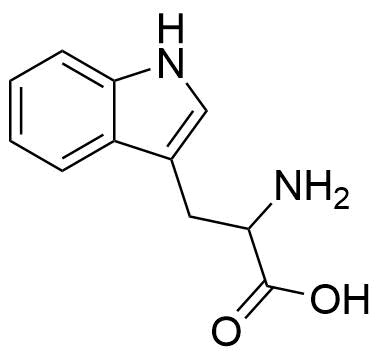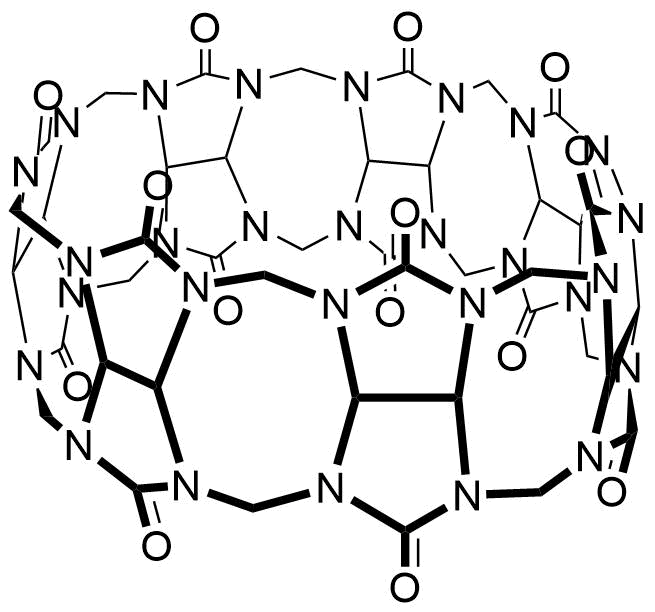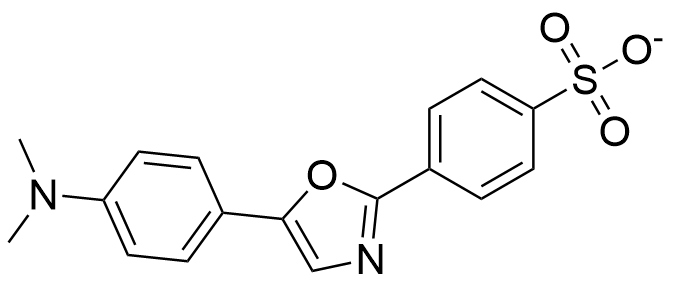Binding Properties
| 𝜈 | Molecule 1 : 1 Host | ||
| Ka = | 1600.0 | ± 160.0 | M-1 |
| Kd = | |||
| logKa = | |||
| T | 25.0 °C | ||
| Energy | kJ mol-1 | kcal mol-1 | |||
|---|---|---|---|---|---|
| ΔG | = | -18.29 | ± 0.25 | -4.37 | ± 0.06 |
These are the specifications of the determination of the experimental results.
| Detection Method: | Competitive | |||
| Assay Type: | Competitive Binding Assay | |||
| Technique: | Fluorescence | |||
| 𝛌ex | = | 336.0 nm | ||
| 𝛌em | = | 380.0 nm | ||
Detailed information about the solvation.
| Solvent System | Buffer System | 10 mM ammonium acetate pH-6.0 |
| Solvents | water | 100.0 % |
| Additives | Ammonium acetate | 10.0 mM |
| Source of Concentration | ||
| Total concentration | 10.0 mM | |
| pH | 6.0 |
Please find here information about the dataset this interaction is part of.
| Citation: |
A. Hennig, H. Bakirci, W. M. Nau, SupraBank 2026, Label-free continuous enzyme assays with macrocycle-fluorescent dye complexes (dataset). https://doi.org/10.34804/supra.20210928224 |
| Link: | https://doi.org/10.34804/supra.20210928224 |
| Export: | BibTex | RIS | EndNote |
Please find here information about the scholarly article describing the results derived from that data.
| Citation: |
A. Hennig, H. Bakirci, W. M. Nau, Nat Methods 2007, 4, 629–632. |
| Link: | https://doi.org/10.1038/NMETH1064 |
| Export: | BibTex | RIS | EndNote | |
Binding Isotherm Simulations
The plot depicts the binding isotherm simulation of a 1:1 interaction of D/L-Trp (0.0125 M) and CB7 (0 — 0.025 M).
Please sign in: customize the simulation by signing in to the SupraBank.





